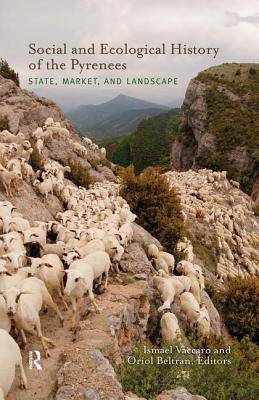
- Afhalen na 1 uur in een winkel met voorraad
- Gratis thuislevering in België vanaf € 30
- Ruim aanbod met 7 miljoen producten
- Afhalen na 1 uur in een winkel met voorraad
- Gratis thuislevering in België vanaf € 30
- Ruim aanbod met 7 miljoen producten
Zoeken
Social and Ecological History of the Pyrenees
State, Market, and Landscape
€ 209,45
+ 418 punten
Omschrijving
This major work of historical ecology advances the integration of research on environmental and social systems, contributing important lessons for contemporary natural resource policy and management. A diverse, international region, the Pyrenees has been characterized as a quintessential example of rural areas across Europe and North America. The authors use qualitative and quantitative methods from economics, history, anthropology, and ecological science to integrate human agency and ecology across a landscape that moved from agricultural and pastoral production to industrialization, then experienced acute depopulation, and now is becoming a focus of conservation and tourism. The book shows how today's most pressing resource policy challenges are best illuminated by this broad, long-term understanding of humans and landscapes.
Specificaties
Betrokkenen
- Uitgeverij:
Inhoud
- Aantal bladzijden:
- 271
- Taal:
- Engels
- Reeks:
- Reeksnummer:
- nr. 1
Eigenschappen
- Productcode (EAN):
- 9781598746129
- Verschijningsdatum:
- 15/11/2010
- Uitvoering:
- Hardcover
- Formaat:
- Genaaid
- Afmetingen:
- 152 mm x 229 mm
- Gewicht:
- 475 g

Alleen bij Standaard Boekhandel
+ 418 punten op je klantenkaart van Standaard Boekhandel
Beoordelingen
We publiceren alleen reviews die voldoen aan de voorwaarden voor reviews. Bekijk onze voorwaarden voor reviews.










